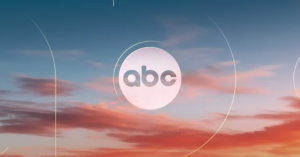Oregon’s state-level efforts to aid those unemployed citizens affected by the coronavirus pandemic officially ran out on Friday. According to Fox 12 Oregon, the Oregon House speaker and Senate president confirmed that the 70,000 payments made available on Wednesday had been “distributed or dedicated.”
The effort comes as federal lawmakers continue to disagree over a second stimulus package, and questions remain over Donald Trump’s executive orders claiming up to $400 in unemployment relief to those already claiming. With unemployment claims climbing again this week, Oregon’s situation shows how there could be other solutions. It also shows that there is a clear need for aid across the board.
Videos by PopCulture.com
“Financial institutions who are participating in this unique public-private partnership will have a final funding allotment cap for the day and will not be accepting new walk-in applications once they reach the allotment cap. Previously scheduled appointments will continue through the end of the month, but new appointments will not be made,” a statement from the state lawmakers’ offices read.
The program was approved in mid-July, setting aside $35 million for $500 check payments to people who applied. Fox 12 notes that there were long lines across the state at credit unions and banks ahead of Friday’s news. The outlet also spoke to one man who claimed he filed unemployment months prior and still hadn’t received a payment.
“It’s crazy man, I’ve been here for what feels like 2 hours now, but it’s worth it,” Jesse Coy told Fox 12. “I’ve got nothing else to do … I’m out of work right now. I haven’t had a job here in a couple of months, and it’s been tough.”
Eligibility for the one-time payment in Oregon required those applying to be 18-years-old, residents of the state, prove they faced hardship from the pandemic and had a pre-tax monthly income under $4,000. Oregon House Speaker Tina Kotek spoke out about the program and the need for federal help.
“These last couple days have put a spotlight on just how dire the need is all across the state,” Kotek said. “We have to get more money to help people. The federal government has the ability to make direct stimulus payments to Americans whose lives are in jeopardy and are not doing so. I find this incredibly frustrating and disappointing.”
As it stands, stimulus negotiations in D.C. are at a standstill. While lawmakers have been called back to vote on emergency funding for the U.S. Postal Service, any talk on stimulus is still up in the air.









